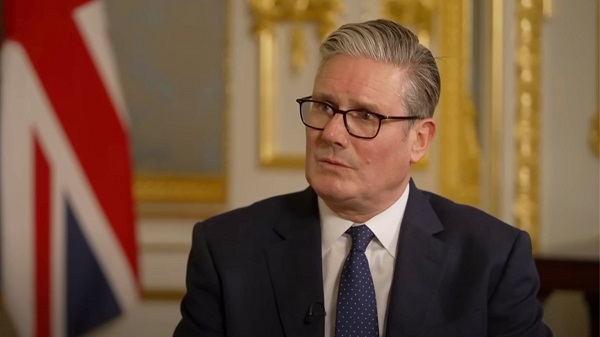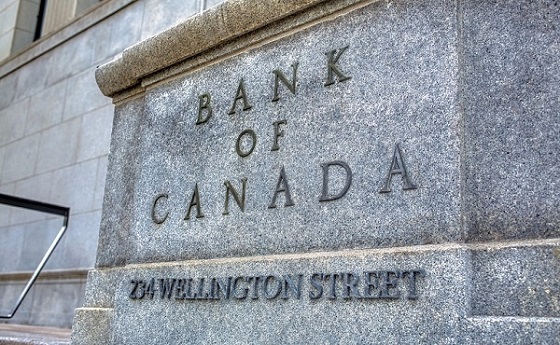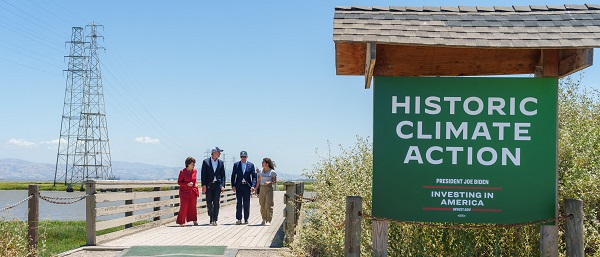Digital Currency
Thousands of political and business leaders gathering in Davos to promote their vision for our future

WEF social media video from 2016 that stated eight predictions about the world in 2030, including: “You’ll own nothing. And you’ll be happy. What you want you’ll rent, and it’ll be delivered by drone.” – Reuters
From the: World Economic Forum Annual Meeting
-
The Annual Meeting 2023 will take place in Davos, Klosters from 16-20 January.
-
The theme of the meeting is ‘Cooperation in a Fragmented World’.
-
The meeting will bring together 2,700 leaders from 130 countries including 52 heads of state/government.
Cooperation in a Fragmented World
Under the theme ‘Cooperation in a Fragmented World’, the Annual Meeting 2023 will bring together more than 2,700 leaders from government, business and civil society, at a pivotal time for the world.
Multiple crises are deepening divisions and fragmenting the geopolitical landscape. Leaders must address people’s immediate, critical needs while also laying the groundwork for a more sustainable, resilient world by the end of the decade.
“We see the manifold political, economic and social forces creating increased fragmentation on a global and national level. To address the root causes of this erosion of trust, we need to reinforce cooperation between the government and business sectors, creating the conditions for a strong and durable recovery. At the same time there must be the recognition that economic development needs to be made more resilient, more sustainable and nobody should be left behind,” said Klaus Schwab, Founder and Executive Chairman, World Economic Forum.
The programme of the 53rd Annual Meeting focuses on solutions and public-private cooperation to tackle the world’s most pressing challenges. It encourages world leaders to work together on the interconnected issues of energy, climate and nature; investment, trade and infrastructure; frontier technologies and industry resilience; jobs, skills, social mobility and health; and geopolitical cooperation in a multipolar world. Special emphasis is on gender and geographical diversity across all sessions.
Top political leaders taking part include:
Olaf Scholz, Federal Chancellor of Germany; Ursula von der Leyen, President of the European Commission; Roberta Metsola, President of the European Parliament; Yoon Suk-yeol, President of the Republic of Korea; Cyril M. Ramaphosa, President of South Africa; Pedro Sánchez, Prime Minister of Spain; Alain Berset, President of the Swiss Confederation 2023 and Federal Councillor of Home Affairs; Ilham Aliyev, President of the Republic of Azerbaijan; Alexander De Croo, Prime Minister of Belgium; Gustavo Francisco Petro Urrego, President of Colombia; Félix Tshisekedi, President of the Democratic Republic of the Congo; Sanna Marin, Prime Minister of Finland; Kyriakos Mitsotakis, Prime Minister of Greece; Leo Varadkar, Taoiseach of Ireland; Maia Sandu, President of the Republic of Moldova; Aziz Akhannouch, Head of Government of Morocco; Mark Rutte, Prime Minister of the Netherlands; Ferdinand Marcos, President of the Philippines; Andrzej Duda, President of Poland; Aleksandar Vučić, President of Serbia; Samia SuluhuHassan, President of United Republic of Tanzania; Najla Bouden, Prime Minister of Tunisia.
As well as:
John F. Kerry, Special Presidential Envoy for Climate of the United States of America; Avril Haines, US Director of National Intelligence; Martin J. Walsh, Secretary of Labor of the United States; Katherine Tai, United States Trade Representative; Chrystia Freeland, Deputy Prime Minister and Minister of Finance of Canada; Christine Lagarde, President, European Central Bank.
Heads of international organizations taking part include:
Antonio Guterres, UN Secretary-General; Kristalina Georgieva, Managing Director, International Monetary Fund; Ngozi Okonjo-Iweala, Director General, World Trade Organization; Jens Stoltenberg, Secretary General, North Atlantic Treaty Organization; Tedros Adhanom Ghebreyesus, Director General, World Health Organization; Fatih Birol, Executive Director, International Energy Agency; Catherine Russell, Executive Director, UNICEF; Mirjana Spoljaric Egger, President, International Committee of the Red Cross.
This year will bring about the highest ever business participation at Davos, with over 1,500 leaders registered across 700 organizations, including over 600 of the world’s top CEOs form the World Economic Forum’s Members and Partners, with top-level representation from sectors such as financial services, energy, materials and infrastructure, information and communication technologies. They come as governments increasingly look to business to take big ideas and put them into action quickly and inclusively. There will also be a strong representation of Global Innovators who are transforming industries, with more than 90 mission-driven leaders from the Forum’s Technology Pioneers and recently launched Unicorn communities.
Leaders from civil society taking part in the meeting include:
Seth F. Berkley, Chief Executive Officer, Gavi, the Vaccine Alliance; Stephen Cotton, General-Secretary, International Transport Workers’ Federation; Christy Hoffman, General-Secretary, UNI Global Union; Hindou Oumarou Ibrahim, President, Association for Indigenous Women and Peoples of Chad; Azza Karam, Secretary-General, Religions for Peace; Oleksandra Matviichuk, Nobel Peace Prize Winner 2022 and President, Centre for Civil Liberties; David Miliband, President, International Rescue Committee; Luisa Neubauer, Climate Activist, Fridays for Future Movement; Kirsten Schuijt, Director-General, WWF International; and Gurudev Sri Sri Ravi Shankar, Founder, Art of Living Foundation.
Among the new initiatives at the Annual Meeting is the Global Collaboration Village, a purpose-driven metaverse that fosters more sustainable public-private collaboration and spurs action to deliver impact at scale. The first-ever metaverse multilateral meeting hosted by the Forum will bring together experts and leaders from finance, food and retail to drive action on ocean health and seafood waste.
This year more than 160 of the Forum’s civic-minded young leaders will join as members of our Global Shapers, Young Global Leaders and Social Entrepreneurs communities. We will also welcome nine Indigenous leaders bringing the knowledge and expertise of their communities to advance regional and global efforts in ecosystem restoration, inclusive trade and sustainable development.
More than 125 experts and heads of the world’s leading universities, research institutions, and think tanks will join the Meeting, bringing the latest facts, insights, science, and data into the programme and the Forum’s work.
The Arts and Culture programme features a number of sessions and immersive art installations on the preservation of coral reefs, displaced peoples and the global refugee crisis, gender equality and female empowerment, and global sea-level rise. It will include the 27th Annual Crystal Awards and our Cultural Leaders.
This year is the 20th anniversary of the Open Forum, which welcomes diverse people from around the world to listen and share experiences with experts and leaders on pressing issues. The theme is, Our Environment: Lessons, Challenges and Opportunities. For more information, click here.
The 53rd Annual Meeting will also be climate-neutral for the sixth consecutive year. New initiatives to boost resource efficiency and reduce emissions will build on the Forum’s 2018 ISO 20121 certification for sustainable event management. Learn more about our strategy and efforts here.

Example of a typical session sees varied personas such as the President of Columbia and former US VP Al Gore speaking with three environmentalists, three business leaders, the President of the National Congress of American Indians, and internationally renowned cellist Yo-Yo Ma talking about “Leading the Charge through Earth’s New Normal”. Here is that agenda item:
—
Leading the Charge through Earth’s New Normal
The world is undergoing interacting crises in food, energy, health and nature that are threatening our way of life and accelerating us towards a global catastrophe.
What visionary leadership is needed for systems thinking, transformative solutions and global collaboration to build a more inclusive, prosperous and sustainable future?
Public Speakers
Joyeeta Gupta
Professor of Environment and Development in the Global South, University of Amsterdam
Johan Rockström
Director, Potsdam Institute for Climate Impact Research (PIK)
Roshni Nadar Malhotra
Chairperson, HCL Technologies Ltd
Al Gore
Vice-President of the United States (1993-2001); Chairman and Co-Founder, Generation Investment Management LLP
Gustavo Francisco Petro Urrego
President of Colombia, Colombia Government
Marc Benioff
Chair and Co-Chief Executive Officer, Salesforce
Andrew Forrest
Chairman and Founder, Fortescue Metals Group Limited
Fawn Sharp
President, National Congress of American Indians
Yo-Yo Ma
Cellist
Gim Huay Neo
Managing Director, Centre for Nature and Climate, World Economic Forum Geneva
Censorship Industrial Complex
Digital ID UK: Starmer’s Expanding Surveillance State

Britain’s digital ID push isn’t about streamlining paperwork. It’s about hardwiring state power into everyday life.
|
UK Prime Minister Keir Starmer came into office promising competence and calm after years of alleged political chaos.
What has followed is a government that treats civil liberties as disposable. Under his watch, police have leaned on broad public order powers to detain people over “offensive” tweets.
Critics argue that what counts as “offensive” now changes depending on the political mood, which means ordinary citizens find themselves guessing at what might trigger a knock on the door.
This is happening while mass facial recognition cameras are being installed in public places.
The pattern is clear: expand surveillance, narrow dissent, and then assure the public it is all in the name of safety and order.
Against that backdrop, a digital ID system looks less like modernization and more like the missing piece in an expanding control grid.
Once every adult is forced to plug into a centralized identity wallet to work, rent, or access services, the state’s ability to monitor and sanction becomes unprecedented.
Starmer’s Labour government is dusting off one of its oldest obsessions: the dream of tagging every citizen like a parcel at the post office.
The latest revival comes in the form of a proposal to create mandatory digital ID cards, already nicknamed the “Brit Card,” for every working adult in the country.
The sales pitch sounds noble enough: crack down on illegal work, cut fraud, plug loopholes. The real effect would be to make ordinary life a permanent identity check.
Officials want job applications, rental agreements, and other basic transactions to be filtered through a government database, accessed through an app.
This, the people are told, will finally stop the shadow economy of dodgy employers. If that logic sounds familiar, it is because it is the same rationale Labour used for its last ID card scheme in the 2000s, a project that ended up in the political landfill in 2010 after enough voters realized what was happening.
“Digital ID is an enormous opportunity for the UK. It will make it tougher to work illegally in this country, making our borders more secure,” Starmer said in his announcement. “And it will also offer ordinary citizens countless benefits, like being able to prove your identity to access key services swiftly – rather than hunting around for an old utility bill.”
Campaigners and data rights groups are not buying the rebrand.
For Liberty’s Gracie Bradley cut straight to the point: the new version “is likely to be even more intrusive, insecure and discriminatory” than the one the country already threw out a decade ago.
That does not bode well for a government trying to convince citizens this time will be different.
Rebecca Vincent of Big Brother Watch spelled out where this all leads: “While Downing Street is scrambling to be seen as doing something about illegal immigration, we are sleepwalking into a dystopian nightmare where the entire population will be forced through myriad digital checkpoints to go about our everyday lives.”
Her warning does not require much imagination. Britain has a spotty track record on protecting sensitive data.
A poll commissioned by Big Brother Watch found that nearly two-thirds of the public already think the government cannot be trusted to protect their data. That is before any giant centralized ID system is rolled out.
Privacy advocates see this as a recipe for disaster, arguing that hackers and snooping officials alike will treat the system as a buffet of personal information.
Former Cabinet Minister David Davis, one of the longest-serving critics of ID schemes, described the risks as existential. “The systems involved are profoundly dangerous to the privacy and fundamental freedoms of the British people,” he said, noting the government has not explained how or if it would compensate citizens after the inevitable breach.
Silkie Carlo, the director of Big Brother Watch, issued a blunt forecast of where the “Brit Card” could lead.
She warned it could extend across public services, “creating a domestic mass surveillance infrastructure that will likely sprawl from citizenship to benefits, tax, health, possibly even internet data and more.”
In other words, once the pipes are laid, the water does not stop at employment checks.
Labour, of course, has been here before. The last time it rolled out ID cards, in 2009, the experiment barely survived a year before being junked by the incoming Conservative-led coalition as an “erosion of civil liberties.”
Labour is leaning heavily on polling that allegedly suggests up to 80 percent of the public backs digital right-to-work credentials.
Starmer himself recently adopted that framing. Earlier this month, he claimed digital IDs could “play an important part” in tackling black market employment.
He is pushing the case again at the Global Progress Action Summit in London, noting that “we all carry a lot more digital ID now than we did 20 years ago.”
What complicates the sales pitch is Labour’s own history of skepticism. Both Keir Starmer and Foreign Secretary Yvette Cooper previously raised concerns about ID systems and their potential for government overreach.
That past caution has not stopped the new Home Secretary, Shabana Mahmood, from becoming one of the loudest champions of the plan. She recently declared the system “essential” for enforcing migration and employment laws.
Labour-aligned think tanks are also providing cover. Labour Together released a report describing digital ID as a “new piece of civic infrastructure,” with the potential to become a routine part of life.
***
Tony Blair has reemerged as a central architect of Britain’s dystopian digital future.
Through his think tank, the Tony Blair Institute for Global Change, the former Prime Minister is pushing the nationwide digital ID system, pitching it as the backbone of a tech-enabled state.
With Keir Starmer now in office, Blair’s vision is no longer an abstract policy paper. It is edging into reality with a new host.
For Blair, digital ID is not about convenience. It is about rewriting how government functions and can be what he calls a “weapon against populism.”
He has argued that a leaner, cheaper, more automated state is possible if citizens are willing to give up parts of their privacy. “My view is that people are actually prepared to trade quite a lot,” he once said, suggesting that resistance will dissolve once faster services are dangled in front of the public.
This project is not limited to streamlining bureaucracy. His version of efficiency is a frictionless state that also monitors, verifies, and restricts in ways that would have been inconceivable before the digital era.
With Starmer’s government now developing a digital ID wallet and considering a national rollout, Blair’s agenda is closer to official policy than ever. Marketed as modernization, the plan points toward a permanent restructuring of the relationship between citizen and state, locking personal identity into a centralized system that future governments will be able to expand at will.
|
|
|
|
You read Reclaim The Net because you believe in something deeper than headlines; you believe in the enduring values of free speech, individual liberty, and the right to privacy.
Every issue we publish is part of a larger fight: preserving the principles that built this country and protecting them from erosion in the digital age.
With your help, we can do more than simply hold the line: we can push back. We can shine a light on censorship, expose growing surveillance overreach, and give a voice to those being silenced.
If you’ve found any value in our work, please consider becoming a supporter.
Your support helps us expand our reach, educate more people, and continue this work.
Please become a supporter
Thank you for your support.
|
Banks
Top Canadian bank studies possible use of digital dollar for ‘basic’ online payments

From LifeSiteNews
A new report released by the Bank of Canada proposed a ‘promising architecture well-suited for basic payments’ through the use of a digital dollar, though most Canadians are wary of such an idea.
Canada’s central bank has been studying ways to introduce a central bank digital currency (CBDC) for use for online retailers, according to a new report, despite the fact that recent research suggests Canadians are wary of any type of digital dollar.
In a new 47-page report titled, “A Retail CBDC Design For Basic Payments Feasibility Study,” which was released on June 13, 2025, the Bank of Canada (BOC) identified a “promising architecture well-suited for basic payments” through the use of a digital dollar.
The report reads that CBDCs “can be fast and cheap for basic payments, with high privacy, although some areas such as integration with retail payments systems, performance of auditing and resilience of the core system state require further investigation.”
While the report authors stopped short of fully recommending a CBDC, they noted it is a decision that could happen “outside the scope of this analysis.”
“Our framing highlights other promising architectures for an online retail CBDC, whose analysis we leave as an area for further exploration,” reads the report.
When it comes to a digital Canadian dollar, the Bank of Canada last year found that Canadians are very wary of a government-backed digital currency, concluding that a “significant number” of citizens would resist the implementation of such a system.
Indeed, a 2023 study found that most Canadians, about 85 percent, do not want a digital dollar, as previously reported by LifeSiteNews.
The study found that a “significant number” of Canadians are suspicious of government overreach and would resist any measures by the government or central bank to create digital forms of official money.
The BOC has said that it would continue to look at other countries’ use and development of CBDCs and will work with other “central banks” to improve so-called cross border payments.
Last year, as reported by LifeSiteNews, the BOC has already said that plans to create a digital “dollar,” also known as a central bank digital currency (CBDC), have been shelved.
Digital currencies have been touted as the future by some government officials, but, as LifeSiteNews has reported before, many experts warn that such technology would restrict freedom and could be used as a “control tool” against citizens, similar to China’s pervasive social credit system.
The BOC last August admitted that the creation of a CBDC is not even necessary, as many people rely on cash to pay for things. The bank concluded that the introduction of a digital currency would only be feasible if consumers demanded its release.
Conservative Party leader Pierre Poilievre has promised, should he ever form the government, he would oppose the creation of a digital dollar.
Contrast this to Canada’s current Liberal Prime Minister Mark Carney. He has a history of supporting central bank digital currencies and in 2022 supported “choking off the money” donated to the Freedom Convoy protests against COVID mandates.
-

 Alberta2 days ago
Alberta2 days agoClick here to help choose Alberta’s new licence plate design
-

 Business2 days ago
Business2 days ago‘Taxation Without Representation’: Trump Admin Battles UN Over Global Carbon Tax
-

 International2 days ago
International2 days agoDaughter convinces healthy father to die in double assisted suicide with mother
-

 espionage23 hours ago
espionage23 hours agoBreaking: P.E.I. Urges RCMP Probe of Alleged Foreign Interference, Money Laundering
-

 Alberta1 day ago
Alberta1 day agoPremier Smith addresses the most important issue facing Alberta teachers: Classroom Complexity
-

 Alberta1 day ago
Alberta1 day agoAlberta taxpayers should know how much their municipal governments spend
-

 National2 days ago
National2 days agoDemocracy Watch Renews Push for Independent Prosecutor in SNC-Lavalin Case
-

 Addictions1 day ago
Addictions1 day agoBC premier admits decriminalizing drugs was ‘not the right policy’



